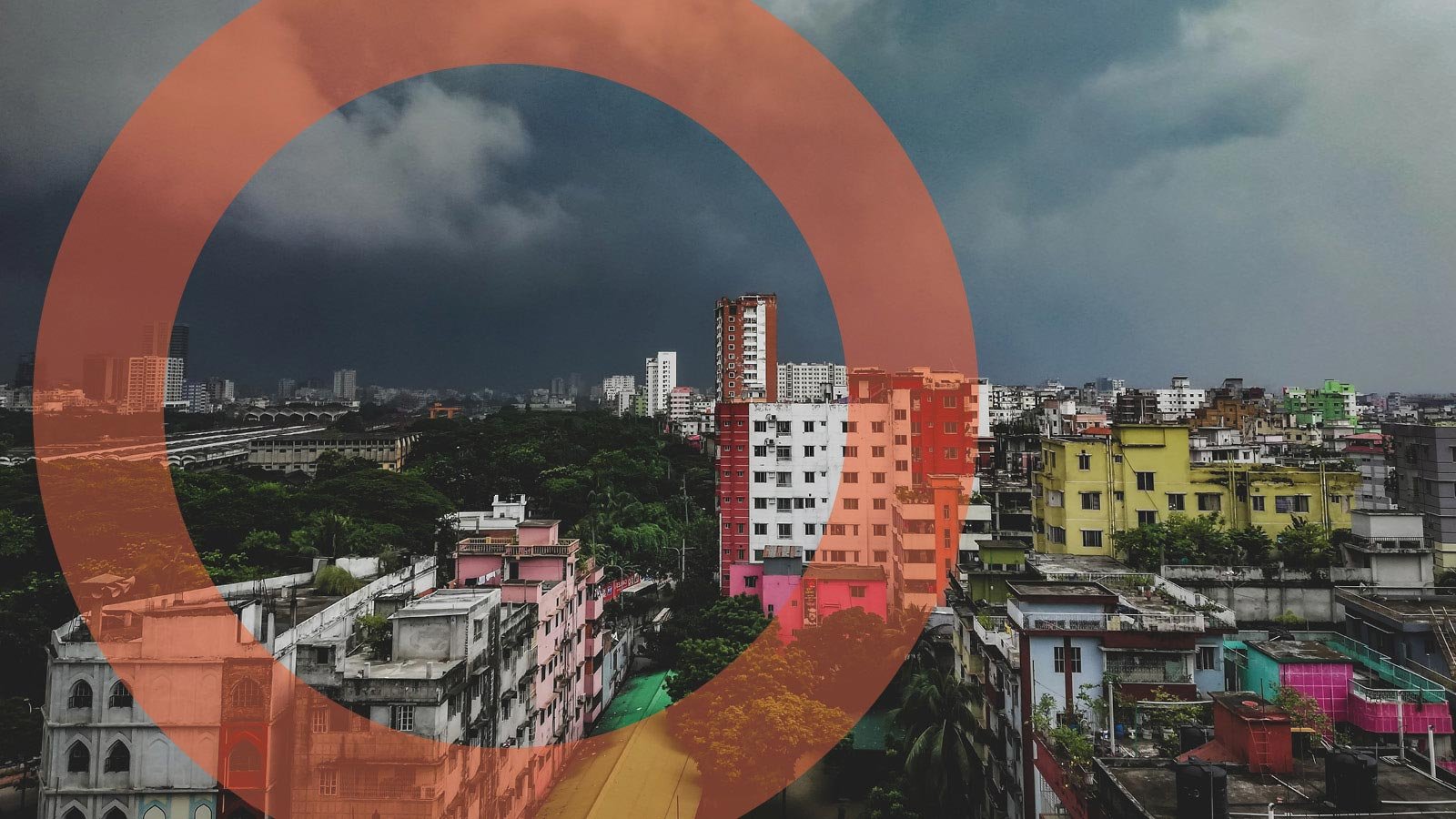
PUBLICATIONS CENTRE
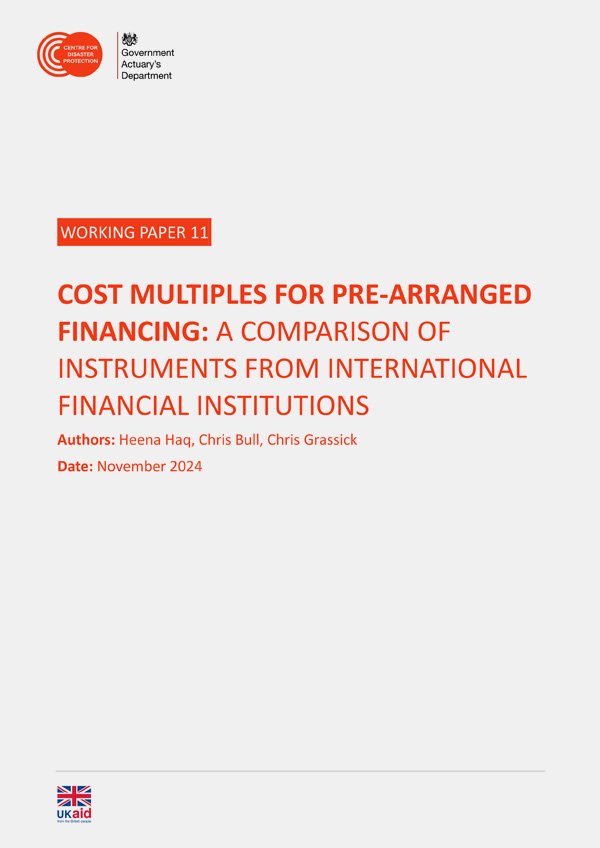
COST MULTIPLES FOR PRE-ARRANGED FINANCING: A COMPARISON OF INSTRUMENTS FROM INTERNATIONAL FINANCIAL INSTITUTIONS
With growing fiscal constraints, governments and development partners face increasing pressure to maximise the impact of every dollar spent. To address this, the UK Government Actuary’s Department and the Centre for Disaster Protection developed an analytical framework to evaluate the cost-effectiveness of various instruments offered by international financial institutions. This working paper presents a framework that compares contingent loans, grants from multilateral development banks, catastrophe bonds, and insurance provided through regional risk pools. The analysis reveals that while some instruments are more cost-effective for frequent events, others perform better for less frequent, high-impact shocks.

A SOCIAL PROTECTION ‘RISK DEAL’: THE MISSING ELEMENT FOR CONNECTING MONEY-IN AND MONEY-OUT
This working paper asks what is required for social protection systems to deliver timely, predictable, well-targeted and cost-effective shock response to disasters. Currently, international support for two key elements – namely, investments in shock-responsive social protection and securing pre-arranged funds for shock response – are growing. The paper, however, argues that a third, linked element is necessary: the need for governments to clarify a shift in the social contract through reliable disaster-contingent public policy and for international actors to align behind this objective.

MALAWI ANTICIPATORY ACTION: PROCESS LEARNING ON TRIGGER DEVELOPMENT
Building on growing evidence that acting prior to the onset of predictable shocks is significantly faster, more dignified, and more cost effective than traditional humanitarian response, UN OCHA has been facilitating the setup of multiple anticipatory action frameworks, including this one in Malawi. This report offers lessons on the process of developing the trigger for the Malawi AA Framework and captures lessons on how AA pilots are being designed and implemented in real time.

UN OCHA ANTICIPATORY ACTION. LESSONS FROM THE 2020 SOMALIA PILOT
This report looks at key lessons from the UN Office for the Coordination of Humanitarian Affairs (OCHA) first anticipatory action (AA) pilot for drought in Somalia, designed and endorsed in 2019. The framework triggered in June 2020 based on projected food insecurity due to covid-19, locusts and flooding.
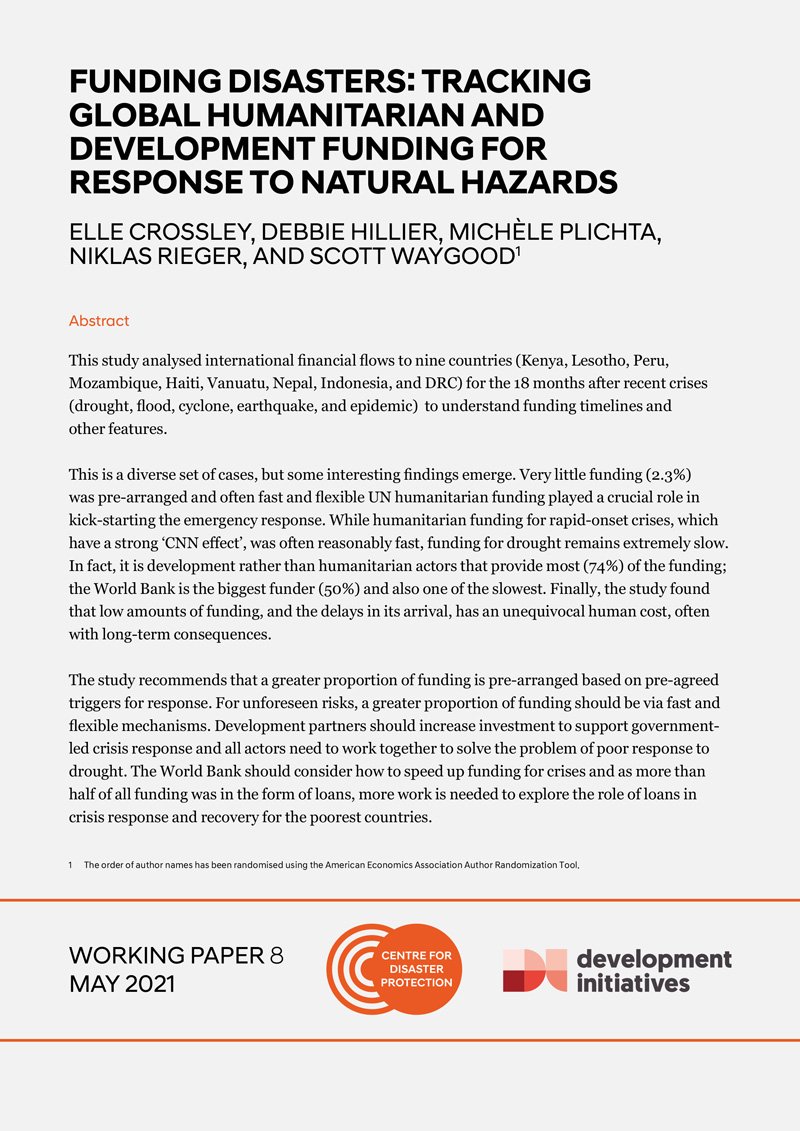
FUNDING DISASTERS: TRACKING GLOBAL HUMANITARIAN FUNDING FOR RESPONSE TO NATURAL HAZARDS
This study analysed international financial flows to nine countries (Kenya, Lesotho, Peru, Mozambique, Haiti, Vanuatu, Nepal, Indonesia, and DRC) for the 18 months after recent crises (drought, flood, cyclone, earthquake, and epidemic) to understand funding timelines and other features.

THE IMPACT OF PRE-ARRANGED DISASTER FINANCE: EVIDENCE GAP ASSESSMENT
This paper examines the evidence on how to prepare better for disasters, specifically the evidence on the welfare impacts of interventions that pre-arrange finance for disaster response. We find that the quality of evidence is mixed across this space.
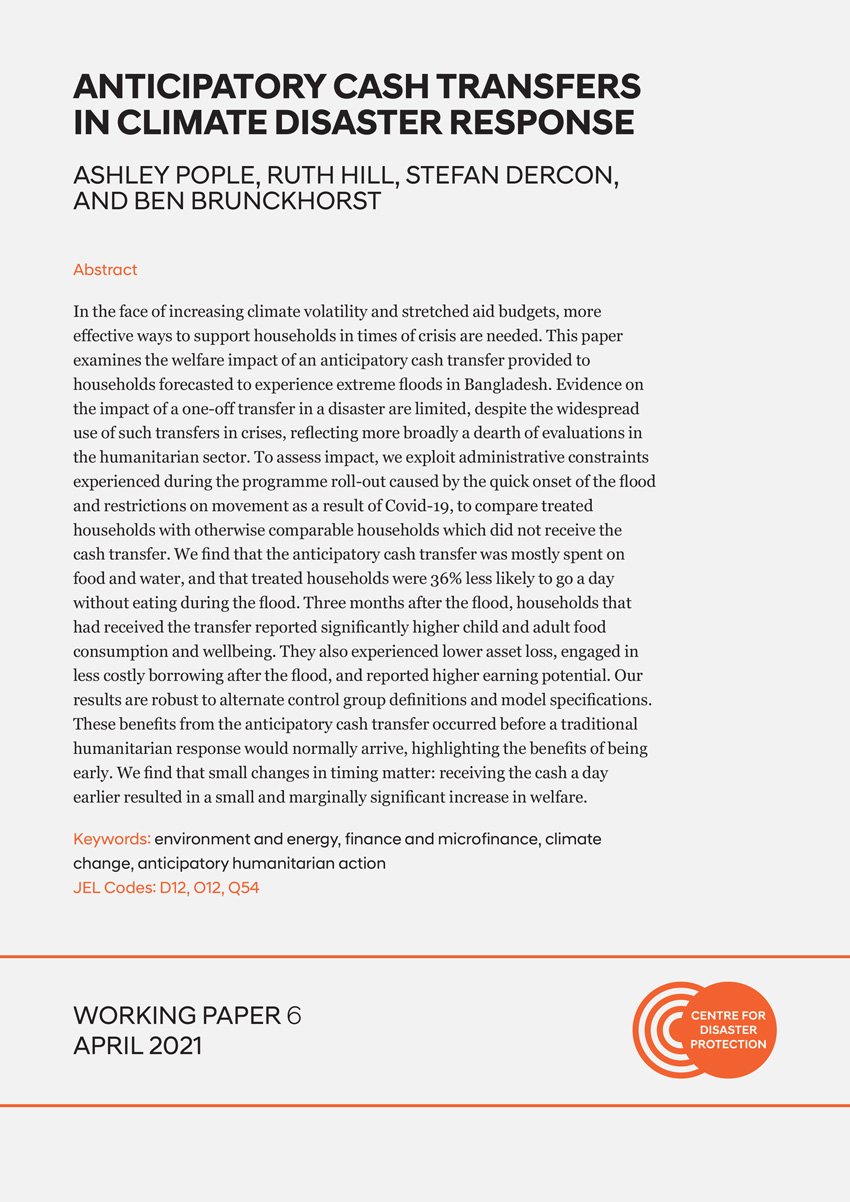
ANTICIPATORY CASH TRANSFERS IN CLIMATE DISASTER RESPONSE
In the face of increasing climate volatility and stretched aid budgets, more effective ways to support households in times of crisis are needed. This paper examines the welfare impact of an anticipatory cash transfer provided to households forecasted to experience extreme floods in Bangladesh.
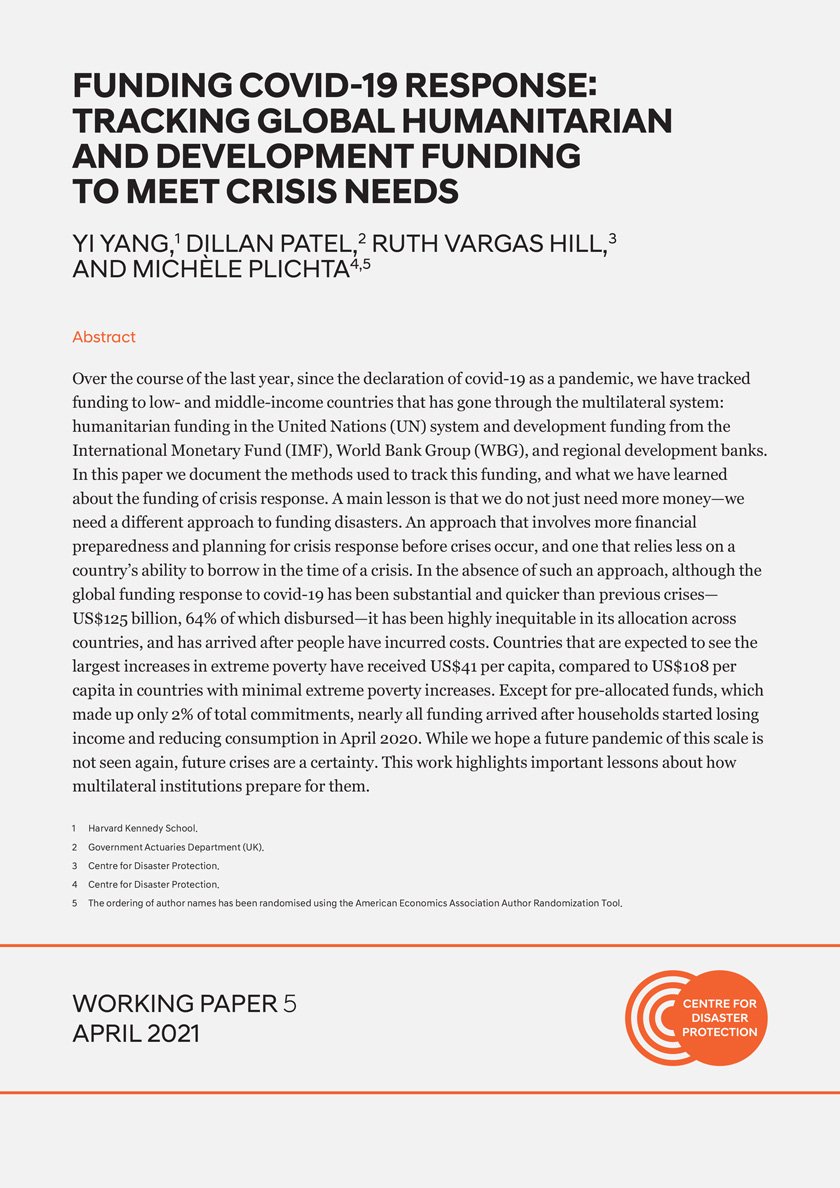
FUNDING COVID-19 RESPONSE: TRACKING HUMANITARIAN AND DEVELOPMENT FUNDING TO MEET CRISIS NEEDS
For the past year, the Centre has tracked funding via the multilateral system intended to support the covid-19 response in low- and middle-income countries. This research has highlighted the flaws in the current system which is not always able to support response where need is greatest.

ACCOUNTABILITY IN DISASTER RISK FINANCING
As disaster risk financing (DRF) matures, it needs to better understand and implement accountability—particularly towards the at-risk people it seeks to benefit. There is growing awareness of this, but application remains nascent. This working paper presents a framework for understanding accountability in this context, as well as an overview of implementation in order to stimulate and inform progress.

COVID-19 AND INEQUALITY: A REVIEW OF THE EVIDENCE ON LIKELY IMPACT AND POLICY OPTIONS
This discussion paper examines the unequal impacts of the pandemic across different groups, the potential consequences for long-term inequality, and the implications of both of these for policy. Although realtime data on the impact of covid-19 in developing countries is currently scarce, early data from surveys during the crisis period, together with available evidence from past shocks, form a useful basis for the discussion.

ANTICIPATING THE IMPACT OF COVID-19: PATHWAYS AND TIMING OF HOUSEHOLD WELFARE SHOCKS
This discussion paper examines the unequal impacts of the pandemic across different groups, the potential consequences for long-term inequality, and the implications of both of these for policy. Although realtime data on the impact of covid-19 in developing countries is currently scarce, early data from surveys during the crisis period, together with available evidence from past shocks, form a useful basis for the discussion.
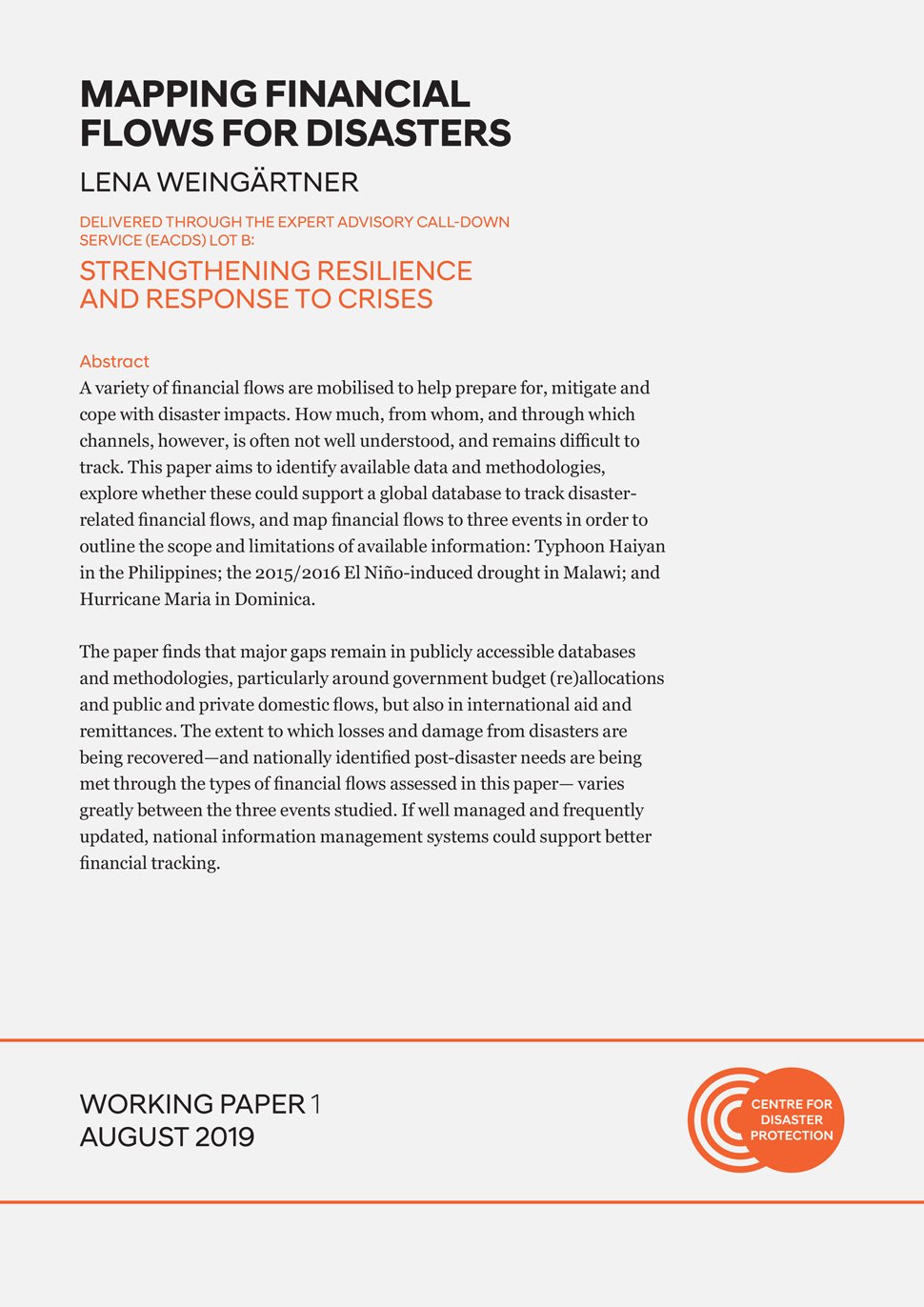
MAPPING FINANCIAL FLOWS FOR DISASTERS
This paper aims to identify available data and methodologies, explore whether these could support a global database to track disaster-related financial flows, and map financial flows to three events in order to outline the scope and limitations of available information: Typhoon Haiyan in the Philippines; the 2015/2016 El Niño-induced drought in Malawi; and Hurricane Maria in Dominica.
